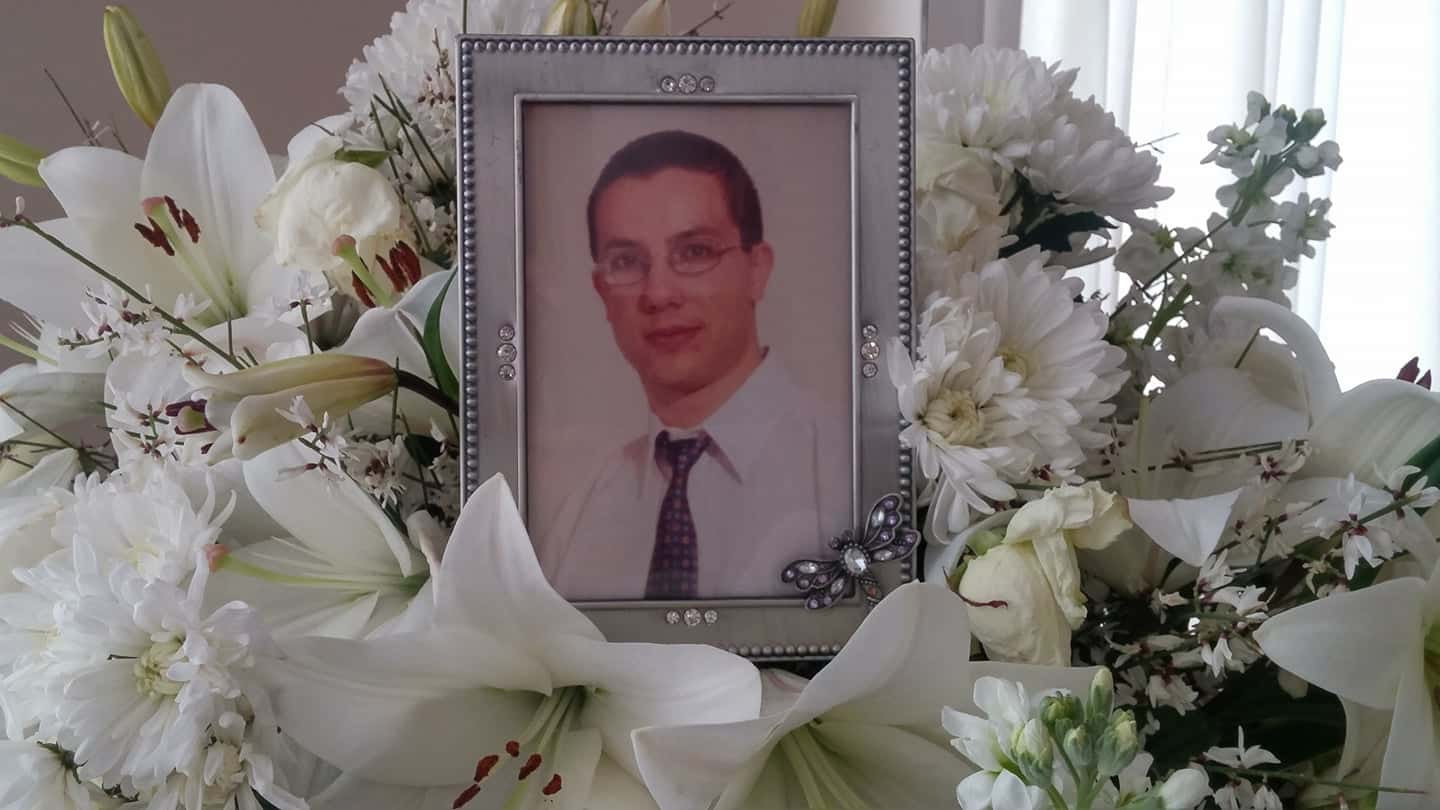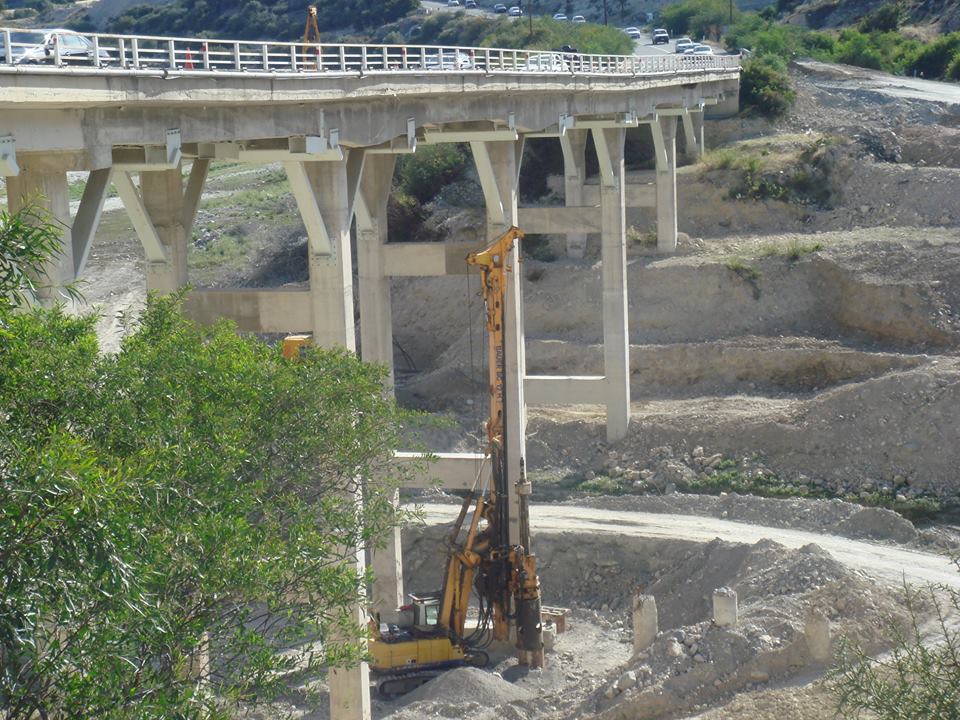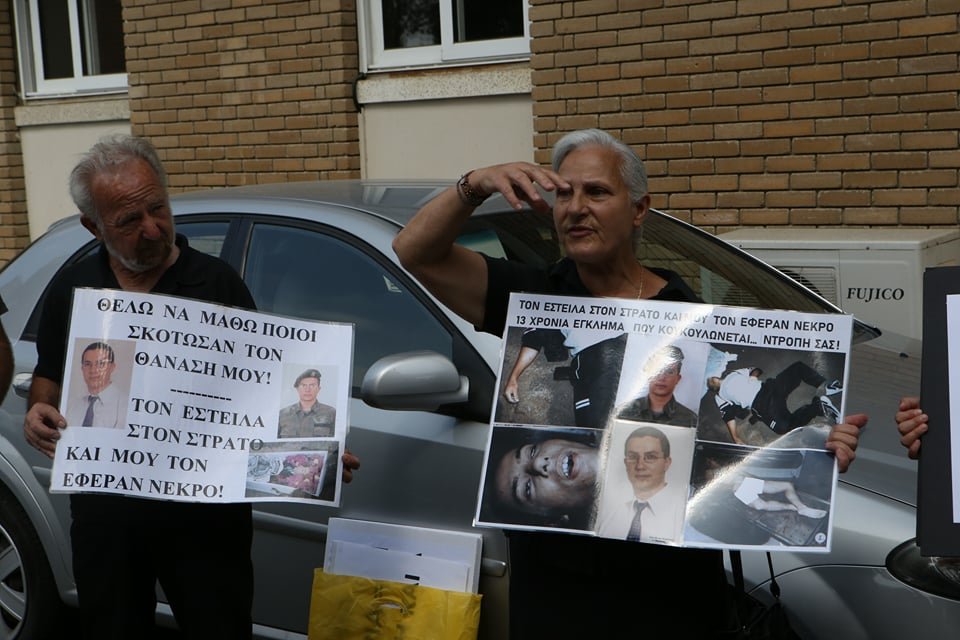The investigation into Thanasis Nicolaou’s death was negligent and irresponsible, the Limassol district court heard on Tuesday.
“The omissions are so many, so great, that it crosses the boundaries of gross negligence and borders on a cover-up,” former investigator into the case Savvas Matsas told the court.
“I have never seen a more negligent and irresponsible investigation.”
Matsas was removed from the case by the attorney-general for revealing details of his findings to the media.
The statements were made during the ongoing inquiry into Nicolaou’s death after he was found dead under a bridge in 2005. Though it was ruled a suicide, his family has been fighting for over 18 years to say Nicolaou was killed and his murder covered up.
A day earlier, Nicolaou’s legal team filed a request that sent shockwaves in the courtroom, asking for a police officer to take the stand.
He would be called to state on the record, details of a testimony received in January, where an individual confessed that Nicolaou was murdered by a group of people. One man had been named in the testimony.
Nonetheless, the judge on Tuesday ruled that the police officer would not take the stand, as this is an inquiry into Nicolaou’s death, and not a prosecution case.
According to Matsas, based on information collected from soldiers, investigators confirmed that Nicolaou was a victim of “consistent and relentless bullying”.
Matsas added that from what he learned, Nicolaou was a civilised man, low-key, with a deep religious faith, and much older than other soldiers he was serving with.
He said that Nicolaou, due to the fact he was born in a different country (Australia), had an accent when he spoke Greek.

Thanasis Nicolaou
“All this was exploited by some people, in the sense that they forced him to do their chores. They called him the Australian, they called him kangaroo. When he came back from guard duty, they would put pieces of paper on his middle toes and light them with fire while he slept.”
Matsas said that Nicolaou was not happy, something he shared with the officers at his camp and with his mother.
“It made an impression on me that he would tell his mother not to say anything, because they were very bad people.”
Matsas added that when Nicolaou told an officer about the bullying, he was told to be patient and that he could not be transferred so should wait patiently for three months to be up, as he was due to be released.
Matsas was then asked by the family’s lawyer to comment about the day Nicolaou was found dead.
He said the first doctor that found Nicolaou’s body was Andreas Koureas, who lived in Pera Pedi and was on his way to work when he crossed the bridge and saw Nicolaou’s body.
“He [Koureas] saw people and police there, asked what was going on and went down to the riverbed and found that he [Nicolaou] was dead and his body was cold. I emphasise this, that he mentions this in his testimony, since the forensic pathologist Panicos Stavrianos, appointed by the police, after an hour, reported that Thanasis was warm.”
Matsas questioned how it was possible for one doctor at 5:30 to find Nicolaou’s body cold, while an hour later Stavrianos discovered and reported the body to be warm.
Matsas said that according to Koureas the body was also wet, and with his mouth, clothes, and hair full of sand, which he said can be seen from photos of the scene.

The bridge Thanasis supposedly fell from
Matsas said that following the doctor, the head of Limassol police, and the head of CID Limassol went to the scene, Nikos Sofocleous, and Mr Kapiliotis, respectively. They were also joined by Mr Petrakkidis from the Lania police station.
According to Matsas, all three arrived before Stavrianos, who he said arrived with none of the necessary equipment to determine the time or cause of death, and that he simply touched Nicolaou said he was still warm and that his death was a suicide.
Asked by the family’s lawyer, Lito Kariolou, if there was a second state pathologist at the scene, Matsas said Nicolas Charalambous was there, as a trainee at the time.
“Thanasis was found in a supine position, with his left hand responding to the left side of his abdomen, his right hand resting on the ground along with his bag, his glasses and behind his back, another object, his watch, with a broken strap. His glasses were unbroken, and his wallet was intact. The watch, however, had the strap cut off,” Matsas said.
He also spoke out against the police that were investigating the case, saying that they simply ruled it as an “unnatural death”.
“From my study of the case, in the 37 years I have served in the legal service, I have not found a more negligent and irresponsible investigation of such a serious incident. An incident in which a young man lost his life and there was no evidence at the scene. Not even a dent where he fell. He had absolutely no trauma consistent with a fall from that height. He was in a position as if he was sunbathing. There were only bruises on his shoulder blade, back, right arm and neck. This evidence a person with a rudimentary knowledge of investigating serious criminal offences should have seen and identified and the only instructions he had to give were that the case should be investigated, at least as a manslaughter.”
Commenting further on post-mortem examinations, Matsas said Nicolaou’s body had no external injury consistent with falling from a great height, and his body did not make the slightest imprint on the riverbed.
Matsas said however, that Nicolaou had an injury to his right leg, which was covered up in the pictures taken at the scene, and subsequently covered at pictures taken during the post-mortem conducted by Stavrianos.
Stavrianos had reported that there was no wound on the body.
“Obviously an attempt was made to conceal the particular spot.”
Matsas said subsequent medical reports did not coincide with any of Stavrianos’ findings, and when Stavrianos was called to answer questions by Matsas and other investigators he refused to give answers.
The court adjourned on Tuesday around noon and will reconvene on Wednesday for Matsas to be cross-examined by the legal service representative.
Andriana Nicolaou, Thanasis’ mother, will be taking the stand to give her testimony on March 8.







Click here to change your cookie preferences